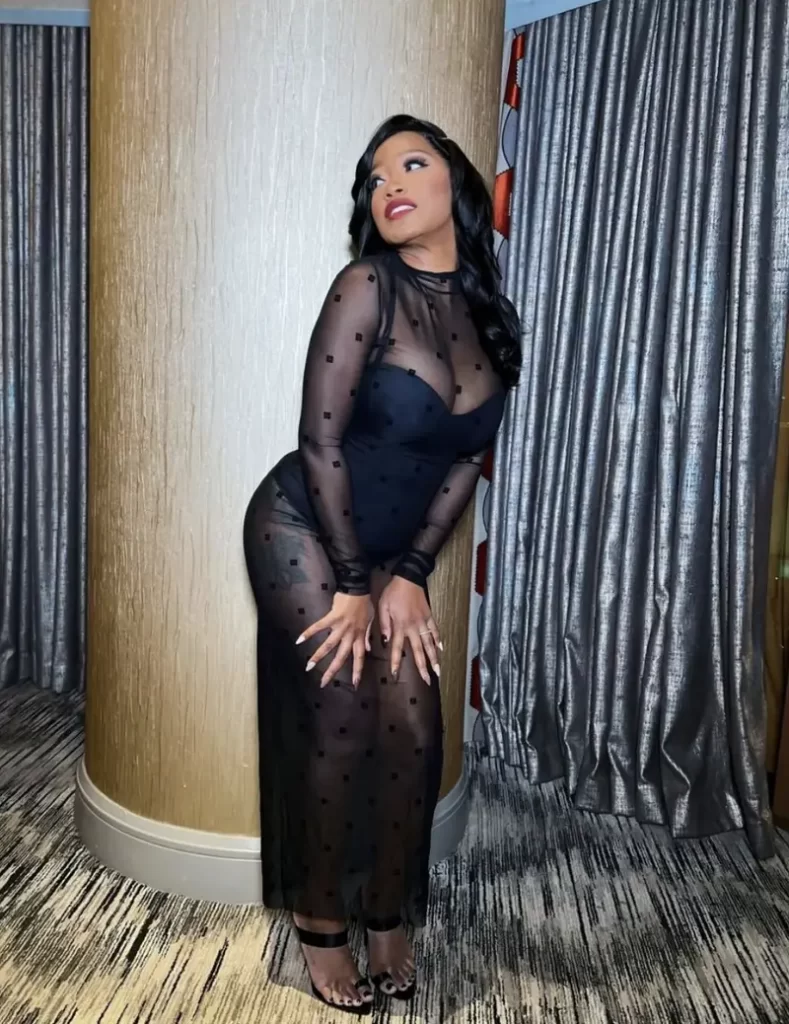
Keke Palmer, a talented actor known for her unapologetic and confident personality, recently faced public criticism from her boyfriend, Darius Jackson, over an outfit she wore to an Usher concert. The incident ignited a heated debate surrounding body policing, traditional gender roles, and the dynamics of relationships.
Leodis “Leo” Andrellton Jackson, the couple’s first child, was born in February of this year after having dated since 2021.
Palmer is well-known for playing a business-savvy stripper in the 2019 film “Hustlers.” Additionally, she is noted for her daring and stylish dress choices. However, a clip of Palmer dancing with Usher at his Las Vegas residency surfaced on social media, showcasing her wearing a sheer black dress with a black bodysuit underneath. Jackson took to Twitter to respond to the video. He seemingly despised her outfit choice by stating, “It’s the outfit tho…you a mom.”
Jackson’s comments sparked an immediate backlash, with fans and followers criticizing him for publicly condemning Palmer’s fashion choice. Many pointed out that being a mother should not dictate how she dresses or limit her freedom to express herself.
Despite the criticism, Jackson doubled down on his opinion. He stated that he believed in upholding certain standards and morals as the man of the family. He deactivated his Twitter account following the controversy.
This incident between Keke Palmer and Darius Jackson draws parallels to previous instances involving high-profile couples. For example, rapper Kanye West, also known as Ye, has openly expressed his opinions on Kim Kardashian’s fashion choices. Before the 2019 Met Gala, West tried to dissuade Kardashian from wearing a Thierry Mugler corset dress, deeming it “too sexy.”
Palmer’s response to the situation, however, was indirect yet consequential. She shared a series of photos on Instagram, proudly showcasing her outfit and expressing her admiration for Usher’s performance. By doing so, Palmer rejected societal expectations of how a mother should dress.
The controversy surrounding Palmer and Jackson raises essential questions about body autonomy, the impact of masculinity in any relationship, and the issue of stereotypical traditional gender roles, whether as parents or not.
So how much should societal expectations influence how women appear? And how can we promote healthy relationship dynamics that support individual autonomy and self-expression? We would appreciate your thoughts on this.




